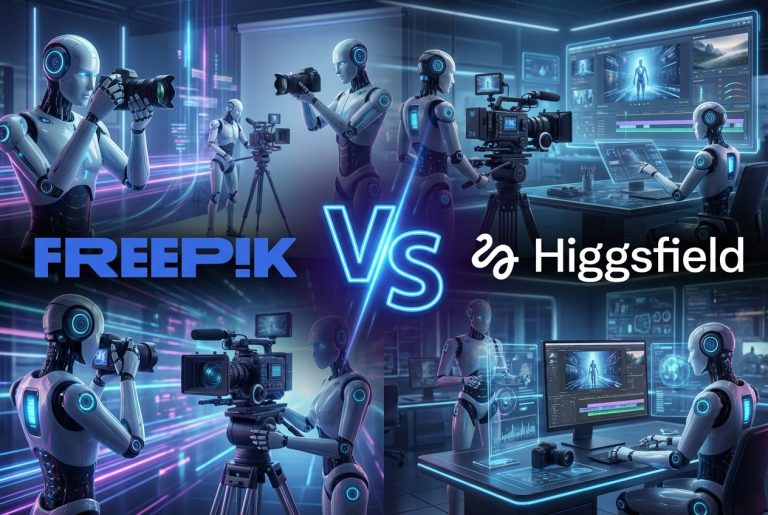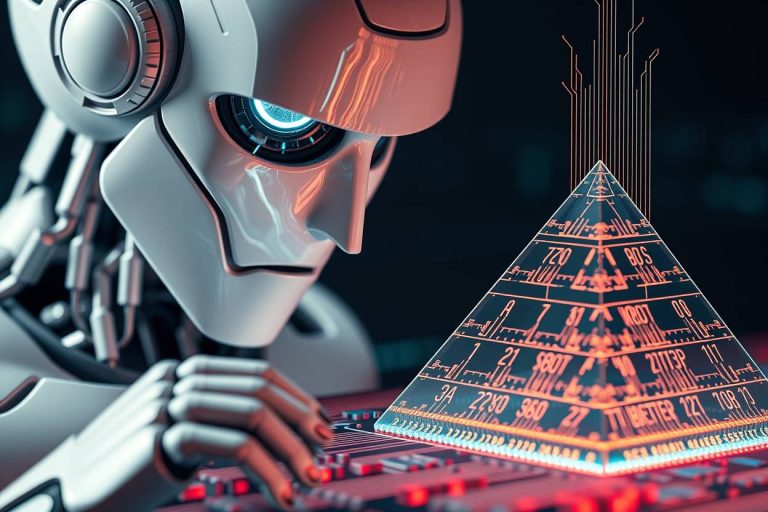AI Education – Why is it important to update our skills with AI Learning

Artificial Intelligence (AI) is no longer a distant, science-fiction concept, but a tangible reality deeply ingrained in our everyday lives, therefore AI education cannot be underestimated. It is an invisible force that shapes our experiences, decisions, and interactions, guiding us on our journey through the Fourth Industrial Revolution. AI is much more than a technological marvel; it represents a paradigm shift in how we perceive, interact with, and shape our world. The need to understand AI, update our skills, and apply creativity in this burgeoning field is not just essential—it is existential.
AI in Our Everyday Lives
It’s hard to overstate the pervasiveness of AI in our lives, given its omnipresence. From the moment we ask Siri to set our morning alarm, to the tailored playlists Spotify generates for our workout, to the personalized shopping suggestions Amazon offers—AI is interwoven into our daily routines.
When we navigate through bustling city streets using Google Maps, it’s AI algorithms that guide us, calculating the optimal route based on real-time traffic data. When we capture moments with our smartphones, AI enhances our photos, smoothing out imperfections and optimizing lighting conditions. Even our online safety is overseen by AI, with intelligent systems identifying potential threats and protecting our digital footprints.
AI’s ubiquity is such that it silently enhances our lives, often unnoticed, making our interactions more efficient, personalized, and informed.
AI learning and how to use Artificial Intelligence as a Tool
Despite its complexity, Artificial Intelligence is, in essence, a tool. A tool designed to sift through and make sense of vast digital data, to recognize patterns, learn from them, and make predictions or decisions. Think of AI as a versatile digital assistant that can perform tasks from simple (like sorting emails) to complex (like predicting stock market trends), all based on its programming.
Understanding AI as a tool demystifies it, moving it from an esoteric realm to the domain of the possible, the learnable. This perspective paves the way for AI democratization, a world where every individual, irrespective of their background, has access to AI education and the technology behind it.
Dig into learning resources early to stay competitive in a fast changing labor market, as well as seizing unique business opportunities.
Opportunities AI Creates for Individuals
The realm of AI isn’t just the playground of tech giants; it’s also a fertile ground for entrepreneurs, innovators, and even individuals with no prior technical background who are keen to learn and apply AI. It offers numerous business opportunities ripe for exploration.
For instance, consider the story of Blue River Technology. Its founders, Jorge Heraud and Lee Redden, weren’t born into tech royalty. They were individuals captivated by the potential of AI. They harnessed AI’s power to develop ‘See & Spray’ – smart farm machinery that precisely sprays herbicides to manage weeds, reducing chemical usage by up to 90%. Their vision and innovation eventually led to their company being acquired by John Deere for $305 million.
Then there’s Zipline, founded by Keller Rinaudo, which started with a simple yet transformative idea: delivering medical supplies to remote areas via drones. Their AI-powered drones have since made over 20,000 lifesaving deliveries.
Or consider ChatGPT, a language model developed by OpenAI. Several businesses have used it to build applications, from drafting emails to writing code, empowering entrepreneurs and startups to provide valuable services.
These are just a few instances of how understanding AI can unlock doors of opportunity. And with the host of learning resources available today, diving into AI has never been more accessible. It’s an invitation to you, the individual reading this, to explore, to learn, and to create. Who knows, the next groundbreaking AI startup might be yours.
Explore some of the best AI Tools to help startups and solopreneurs to bring their business to the next level by automating tasks, save money and improve operations.
AI and the Disruption of Society

As AI reshapes our world, it necessitates societal adaptation. Jobs, businesses, and entire industries face massive transformation. Automated vehicles, for instance, may improve road safety and reduce traffic, but also pose questions about the future of truckers, taxi drivers, and related industries.
Similarly, AI-driven automation in manufacturing raises efficiency and reduces costs, but may displace assembly line workers. We must not view these disruptions with fear, but see them as catalysts urging us to adapt, learn, and grow.
The Changing Workforce
The AI wave is washing over the job market, redefining roles and creating new ones. Traditional jobs may shrink, but emerging roles like AI Ethics Officers, Data Scientists, and AI Specialists hold vast potential. The World Economic Forum predicts that by 2025, AI and automation will have created 12 million more jobs than it will have displaced.
Upskilling for these new roles is the key. A study by McKinsey suggested that 87% of executives experienced skill gaps in the workforce or expected them within a few years, but less than half had a clear strategy to address the problem. This is where AI education steps in, bridging the gap, and preparing us for the jobs of the future.
Understand the basics: Before diving into complex AI algorithms, ensure you understand the foundational concepts well. Explore a collection of curated courses for different levels of experience
AI Trends and Evolution
AI is not a static field; it is constantly evolving, and its trends are reshaping industries and redefining possibilities.
Take the rise of AI-powered chatbots and virtual assistants, for instance. They’re revolutionizing customer service, providing real-time assistance and personalized interactions. In the healthcare sector, AI trends like predictive analytics are being used to forecast outbreaks and manage patient care more effectively.
Deepfake technology, a more controversial development, uses AI to create hyper-realistic images and videos. While this poses ethical and security challenges, it also opens new avenues in entertainment and content creation.
Quantum AI, though in its infancy, holds promise for processing complex computations exponentially faster than conventional computers, a trend that could fundamentally change the landscape of AI capabilities.
AI trends are not mere passing fads. They represent the evolution of a technology that’s transforming our world. Keeping abreast of these trends is crucial to staying ahead of the curve, further underlining the importance of continued learning and adaptability in the age of AI.
AI Courses and Resources on how to learn about AI

While courses are a fantastic way to delve into AI, other resources can supplement your learning. Blogs such as Tech Pilot offer invaluable insights into AI trends, developments, and applications.
Newsletters like “The Algorithm” by MIT Technology Review, “Alpha Signals” or “AI Breakfast”, provide weekly updates on the AI world.
Websites like Arxiv.org, a repository for scientific papers, and Towards Data Science, a Medium publication, can help you dive deeper into AI research. Online communities, like those on Reddit or Stack Overflow, offer platforms to ask questions, share ideas, and collaborate on projects.
In essence, the journey of AI education is not a road to be walked alone but a thriving community ready to aid and inspire each other. Immerse yourself in these resources, keep learning, and let AI be the stepping stone to your dreams.
Conclusion – Embrace the early AI Education
In this era of AI ascendance, understanding AI, updating our skills, and applying creativity in this space are not just beneficial – they’re vital. It’s through education that we can transform AI from a tool to a companion, working alongside us to create a future where technology enhances human potential rather than stifles it.
So, it’s time to ignite your curiosity, fuel your learning journey, and dive into the world of AI. Begin by exploring the array of AI courses available – who knows, the next AI breakthrough might just come from you!
Our top pro tips on AI Education
- Understand the basics: Before diving into complex AI algorithms, ensure you understand the foundational concepts well.
- Code is key: Familiarity with a programming language, particularly Python, is beneficial in the AI field.
- Hands-on experience: Theoretical knowledge is important, but practical application is crucial. Engage in projects and competitions to gain hands-on experience.
- Stay curious: AI and AI education is a rapidly evolving field. Stay curious, ask questions, and keep learning.
- Ethics matter: As you delve into AI, remember to consider the ethical implications of the technology.
- Networking: Connect with AI enthusiasts, experts, and learners across the globe. Networking can open doors to opportunities and collaborations.
- Real-world problems: Use AI as a tool to solve real-world problems. This approach can lead to innovative solutions and business ideas.
- Reading Research Papers: Research papers offer deep insights into AI trends and developments. Websites like Arxiv.org can be a great resource.
- Focus on Data: AI relies heavily on data. Understanding how to work with, analyze, and interpret data is crucial.
- Resilience: AI Learning can be challenging at times. Remember, resilience and persistence are part of the journey. Keep going, and you’ll reap the rewards.
- What is AI? AI, or Artificial Intelligence, is a branch of computer science that aims to create machines that mimic human intelligence—learning, reasoning, problem-solving, perception, and language.
- Is AI limited to tech professionals? No, AI is a versatile field with applications in many sectors. Anyone willing to learn can venture into AI and find opportunities.
- How can I start learning about AI? Start with online courses, blogs, and resources. Many platforms offer courses, from basics to advanced levels, in AI, machine learning, and related fields.
- Is AI going to replace my job? While AI does automate certain tasks, it also creates new roles that didn’t exist before. Upskilling and reskilling can help you stay relevant in the changing job landscape.
- How does AI impact our everyday lives? AI affects our lives in numerous ways—from personalized content recommendations to digital personal assistants, smart home devices, advanced medical diagnostics, and much more.
- How can I stay updated with AI trends? Subscribe to AI-focused blogs, newsletters, and podcasts. Attend webinars, workshops, and tech talks to keep up with the latest developments.




